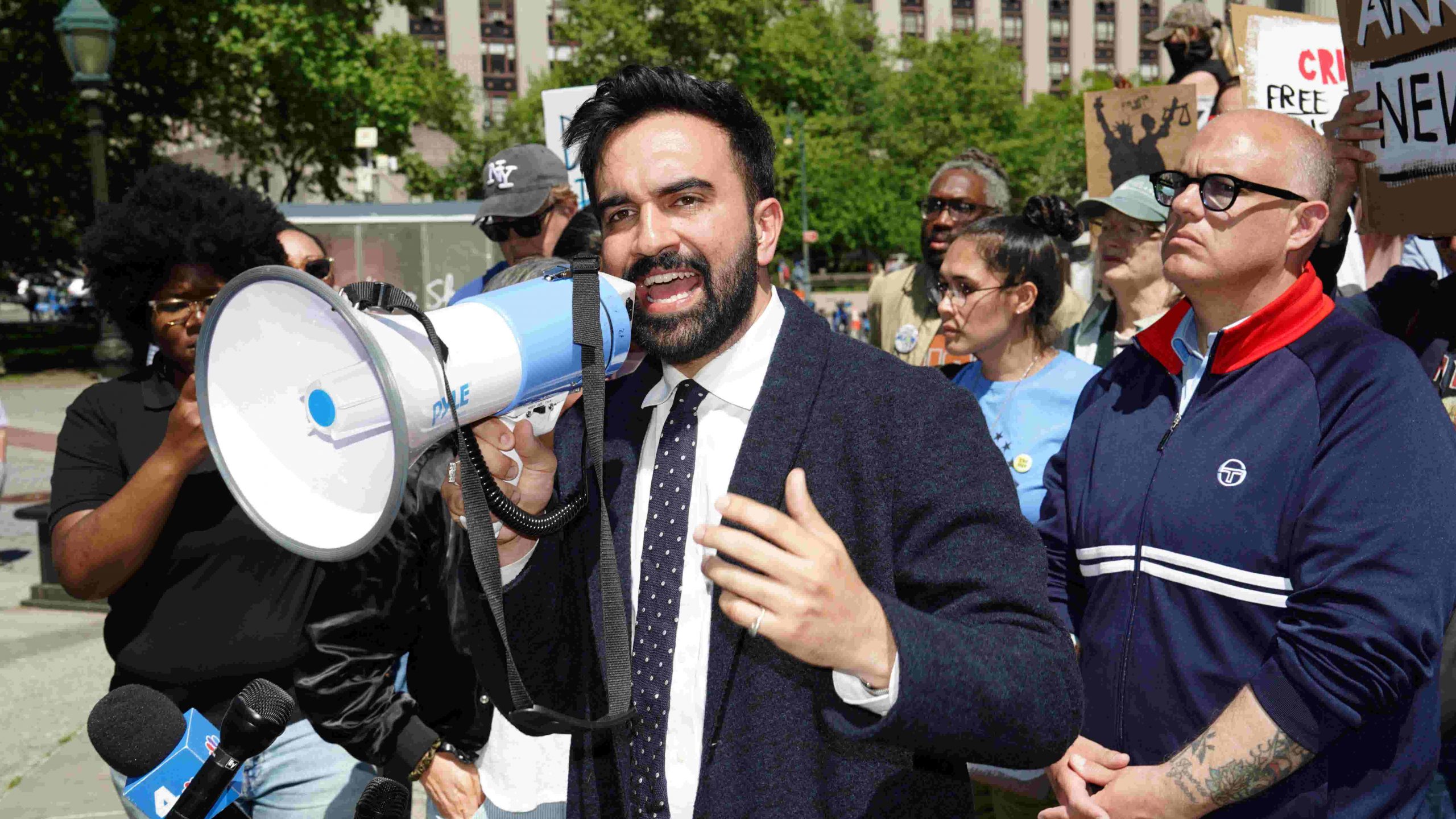The Haitian program is one of several the Department of Homeland Security seeks to end as the Trump administration takes a harder line on immigration.

Alligator Alcatraz pro-Trump demonstrator speaks up.
A handful of pro-Trump demonstrators showed up at the entrance of Alligator Alcatraz on the day of Trump’s July 1 visit to Alligator Alcatraz.
- A federal judge blocked the Trump administration from ending a temporary work program for Haitian immigrants early.
A federal judge blocked the Trump administration from ending a temporary program that provides work permits and protection from deportation for more than 500,000 Haitian immigrants months earlier than it was set to expire.
The Department of Homeland Security announced in February it was rescinding the program called “temporary protected status” for Haitians. Trump’s predecessor, Democratic President Joe Biden, had set to run through Feb. 3, 2026.
But U.S. District Judge Brian Cogan in Brooklyn ruled July 1 that DHS Secretary Kristi Noem did not follow instructions and a timeline mandated by Congress to reconsider the program.
“Plaintiffs are likely to (and, indeed, do) succeed on the merits,” Cogan wrote. “Plaintiffs have also shown that they will suffer irreparable injury without postponement.”
Federal courts blocked Trump from ending most enrollment in temporary work programs for immigrants during his first term. But the Supreme Court in May let the administration end the temporary program for the Venezuelans, signaling that other terminations could be allowed.
The Trump administration also halted another program protecting immigrants from Cuba, Haiti, Nicaragua and Venezuela in June.
And Trump imposed a travel ban against people arriving from a dozen countries including Haiti in June. The State Department has a Level 4 “Do Not Travel” warning for Haiti, citing widespread kidnappings, violent crime, and near-total collapse of emergency services.
The advocacy group Haitian Bridge Alliance condemned the administration’s move to end the temporary work program after the 2021 assassination of President Jovenel Moise and a 7.2 magnitude earthquake a month later. The group said the country where more than 1 million people are displaced faces rampant gang violence, and a lack of food and fuel.
“This is not just cruel − it’s state-sanctioned endangerment,” Guerline Jozef, executive director of Haitian Bridge Alliance, said in a statement about ending the program. “Sending back hundreds of thousands of people to a country overrun by gangs, where hospitals are shuttered and food is scarce, is a direct assault on Black immigrant communities.”
Noem decided to end the temporay program Aug. 3 and then pushed the date back to Sept. 2.
Cogan found that the government didn’t argue Noem had the statutory authority to end the temporary program. Instead, the government argued Noem was exercising her authority under the Immigration and Nationality Act.
Cogan, who was appointed by George W. Bush, ruled Noem’s action was “unlawful” for lack of statutory authority.
Cogan also said Haitians’ interests in being able to live and work in the United States “far outweigh” potential harm to the U.S. government, which remains free to enforce immigration laws and terminate the program.
The case was filed on March 14 by nine Haitians who said Noem did not do a required review of current conditions in Haiti before ending the temporary program early.







